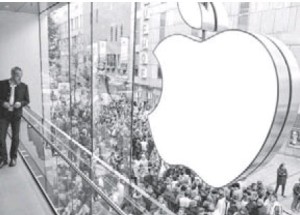I came across this article on BBC business news section and surprisingly, it is related to our reading for Monday; the article talks about the next phase of technology and globalization. Speaking from experience as a foreigner, technology has changed the way the world communicate, i can Skype, Facebook chat with my cousins in the most remote village in The Gambia. The article divided the effects of technology and globalization into three sections.
Most businesses operate on a rationality concept- getting more done and spending less. According to the article, except for the jobs that require complex knowledge and expertise, many middle skilled jobs will be at risk of been outsourced. I am not okay with this part of technology and globalization because not every person can become an engineer, a lawyer or a doctors; if semi-skilled jobs are outsourced, it may become hard for people who do not have complex expertise to find decent jobs.
Another highlight the article talked about is external competition. One of the crucial reason people the outside world are lured to the West is access to better education. With Educational platforms like MIT’s OpenCourseWare, Open Yale, and iTunes U, high quality education can be acquired by students living in some remote parts of the world. I think this is a good move, because it will minimize immigration and open the world to people who may not have to chance to travel to the West.
The article finally talked about emergence of Transnationals. To summarize the last part of the article it simple said that technology will continue to re-balance the world by creating leaders form different parts of the world. what i understand from this is that in the near future, ones look may not judge his origin and the American for example will have a prefix, say a Chinese American.
In most aspects, I am in support of the rising trend of technology and globalization, because i think it will help bring light the many different cultures and people of the world on some kind of similar platform, what do you think?

